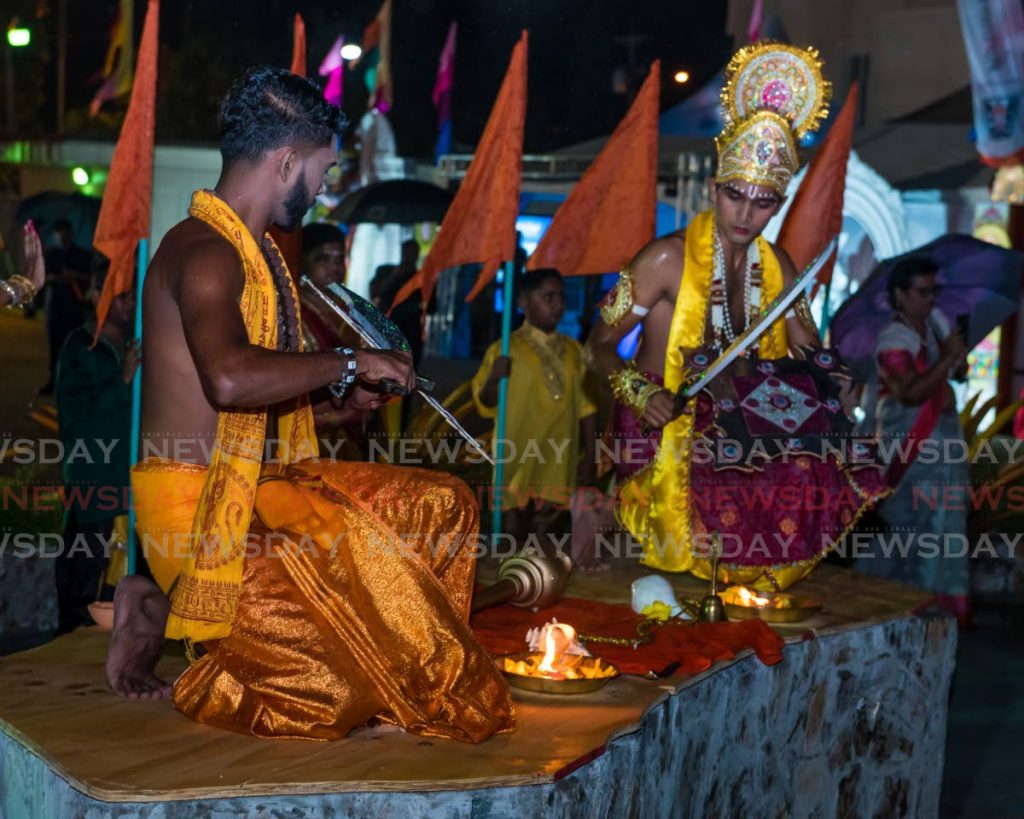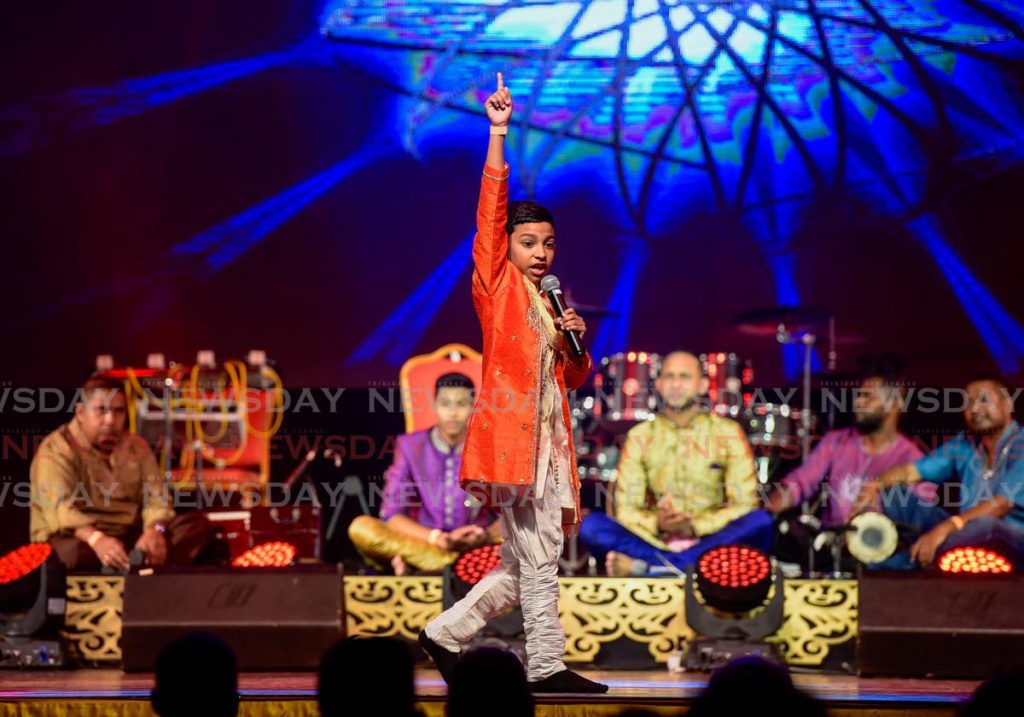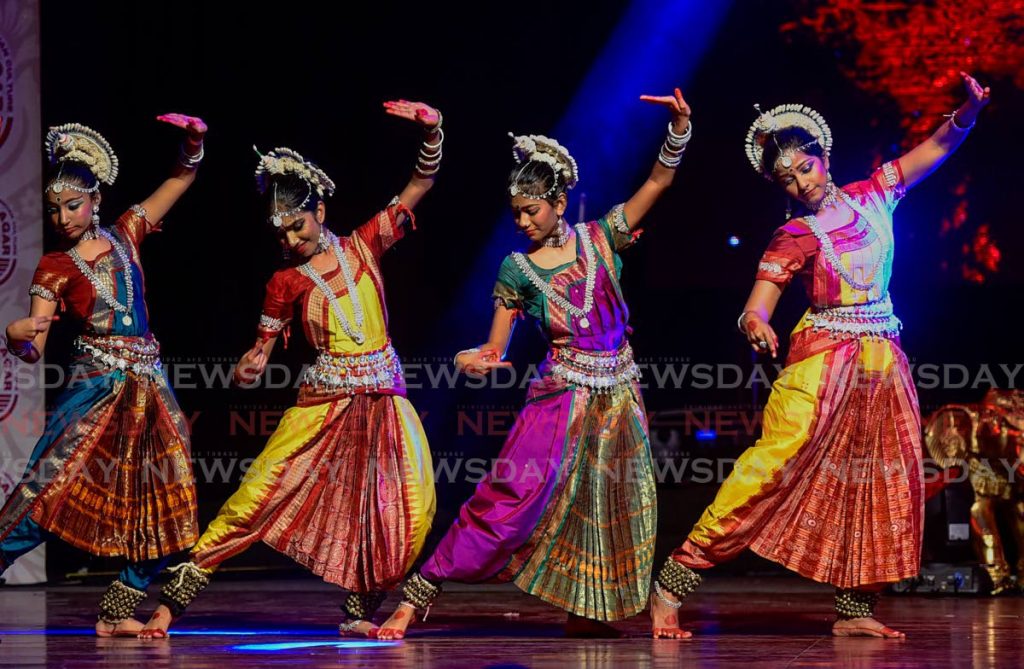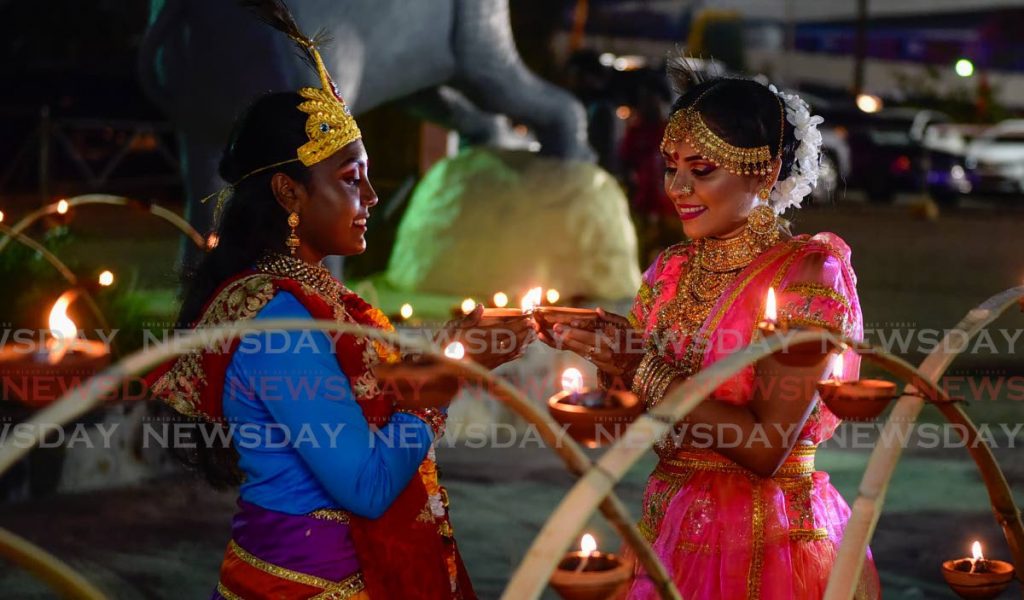Divali Nagar lighting way for Indian culture across Caribbean

DR PRIMNATH GOOPTAR
Divali Nagar (City of Lights) is a yearly showcase of Indian culture in TT. The exhibition, which spans nine nights, is presented by the National Council of Indian Culture (NCIC) at its headquarters, NCIC Nagar, Chaguanas.
This year, due to the covid19 pandemic, the NCIC has organised a virtual nine-day Divali Nagar, November 5-14 with the theme Yaadein (Hindi for Memories of a Lifetime). The broadcasts runs from 8-10 pm each night on CNC3 TV, Sangeet 106.1 and Aakash Vani 106.5, with live streaming on the council’s social media platforms.
Divali Nagar and the NCIC have exported aspects of TT's Indian culture to the Caribbean and other diaspora countries, and those countries have reciprocated by participating in Divali Nagar and other NCIC events. It has opened new doors to East Indians culture, arts and artefacts and has propelled many local artists to national and international fame. The showcase has placed Indian culture on a new footing in TT and has given East Indians in TT a sense of patriotism, nationalism, and belongingness.

Following the tremendous success of Divali Nagar and the international recognition it received from the Caribbean and other countries over the years, the NCIC was approached by lovers of Indian culture in the Caribbean and North America to introduce Divali Nagar to revive and propagate Indian culture in those areas. The NCIC considered the proposal and decided to support the propagation of an expansion of Indian cultural traditions in countries such as Guadeloupe, Martinique, Grenada, St Vincent and St Lucia, among other countries in the Caribbean. The outreach effort has spread to the US, Canada, Mauritius, Belize and Holland.
East Indians who live on most of the Caribbean islands as a result of the Indian indentureship programme have experienced a loss of their Indian cultural roots. By the 1980s, East Indians living in Guadeloupe and Jamaica had turned to TT for support in the rehabilitation of their Indian cultural roots. There were several cultural missions from TT to other Caribbean countries in support of the initiative. For example, in Caribbean countries such as Jamaica, St Lucia, St Vincent, Grenada and Guadeloupe the NCIC has become the leading organisation in assisting descendants of the Indian indentured immigrants in those countries in their search for their ancestral roots, culture, and identity. The NCIC sees this as part of its mandate.
In some countries where Christianity is the dominant religion, the NCIC has not attempted to interfere with the religious nature of the people, but has merely sought to instil in them a sense of identity through the search for their roots using culture as the main vehicle.
Executive member of the NCIC Kanhai Kangal said, “The NCIC’s foray into the diaspora countries has helped East Indians in those countries discover their lost roots in trying to reclaim their lost heritage. There is an urgent cry and need among the people of these diaspora countries to learn more about themselves, about their culture, about their roots and while they are mostly Christians, their religion has not prevented them from trying to find their ancestral roots. In other words, being a Christian does not prevent one from being involved in Indian culture or finding their Indian ancestral roots.”

Divali Nagar has spawned several regional and international Divali Nagar celebrations and the NCIC has always sought to expand its horizons both locally and internationally. Over the years, the organisation has sponsored teaching and learning programmes to several Caribbean countries. The formal outreach programme began in 1988 when the vice president of the NCIC, Dr Deokienanan Sharma led a cultural delegation to Guadeloupe and Martinique to assist with the revival of Indian culture in those French colonies.
In 1989 the East Indians in Guadeloupe wanted to celebrate Divali and sought the support of the NCIC once more. The NCIC donated several boxes of deyas, coconut oil and wicks to assist with the celebration of Divali in that country. In the early 1990s a cultural contingent participated in Guadeloupe's 150th anniversary of the arrival of Indian indentured immigrants to that country. Over the years the NCIC has consistently supported various celebrations in other diaspora countries.
Most visits to diaspora countries are undertaken at no cost to the NCIC. The executive members of the NCIC who go on those visits purchase their own tickets while sponsors are sought for tickets for members of the cultural contingent. The hosts in the relevant countries assume responsibility for hospitality including accommodation, meals, transport, sightseeing and other aspects of the visits to the country.
The teaching and learning component of the outreach programme is a key aspect of the outreach effort. When local artistes visit those countries as part of the outreach programme they give live performances to the locals and teach their artistic skills to the locals so that when they leave the country, they would have left something behind. The appreciation from the diaspora Indians, particularly in the Caribbean countries is overwhelming.
Kangal said, “When our local artistes perform in those countries I have heard comments such as ‘we only see such performances on TV; we have to travel abroad to see such performances; we are very happy to have artists of the calibre that we see here perform for us.' In addition, when those artists teach the local people the art form, at the end of a week-long workshop, they are able to give credible performances to their local people and they are highly praised for such endeavours.”

The NCIC has also donated instruments, dance costumes and other materials to diaspora groups and has sent tutors as part of follow-up events to assist in the propagation of Indian culture in those countries.
Divali Nagar’s and NCIC outreach programme co-ordinator Surujdeo Mangaroo said the programme has been expanded beyond the Caribbean, targeting Indians in the global diaspora. “By that time several Caribbean islands such as Guadalupe, Jamaica, Martinique, St Vincent, St Lucia, Grenada had already been on board. I further expanded the linkages to Surinam and Guyana. I subsequently expanded the Divali Nagar to the USA (Florida) with Neil Persad as our main organiser there, and since then every year we have sent local artists to participate in the Divali Nagar celebrations. Unlike ours, theirs was limited to a three-night Divali celebration.”
As the years went by and the cultural spread of the NCIC in the Caribbean began to bear fruit because of the teaching and learning content of the programme, interest in Divali Nagar from those countries grew. In an effort to be all-inclusive, the NCIC started a Caribbean night with performances by Caribbean artists. That was a night dedicated to promoting the work of Indian artists from the Indian diaspora in the Caribbean which helped to showcase surviving aspects of Indian culture in other Caribbean islands where Indian indentured immigrants went to work. Mangaroo said, “Some aspects of that Indian culture we have lost in Trinidad. For example, from Jamaica, there was the Ghat-Gora dance (horse stance)."
He said a Jamaican contingent which performed here was well received wherever they performed. "Artists from Guyana, Guadeloupe, Surinam and others also participated in parts of the outreach programmes and the two were always accorded the highest decorum and reception wherever they performed.”
The Caribbean night at Divali Nagar ran for several years and then that was merged into three different competitions: youth Champ in Concert, Divali Nagar Dance competition and The Divali Queen competition in which Caribbean and other representatives were invited to participate.
Mangaroo said, “In addition to the artists who came from the Caribbean and North America there were large numbers of visitors from Holland, London, Canada and even Mauritius who visited the Divali Nagar. Divali Nagar has the potential to become a huge tourism product for TT but needs additional support from government and governmental agencies to reach that goal.
"Artistes from the USA, Canada, Holland, India, London, Suriname, Guyana, Jamaica and Belize have participated in Divali Nagar within recent years. One of the regulars who have been with us in Divali Nagar every year for the last decade has been Dr Winston Tolan from Jamaica who attends and brings a small contingent of artists from his country. He is also a singer and performs for the audience.”


Comments
"Divali Nagar lighting way for Indian culture across Caribbean"